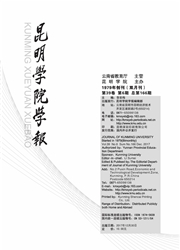

 中文摘要:
中文摘要:
[Objective] This study aimed to investigate the effects of heat shock factor AtHsfA1a on programmed cell death in Arabidopsis thaliana under cold stress. [Method] AtHsfA1a-silenced transgenic( NT) and wild-type( WT) A. thaliana seedlings were used as experimental materials to induce the formation of callus; the callus were cultured to single cells by suspension culture,subjected to cold stress,stained with DAPI,prepared into cell smears and observed under a fluorescence microscope. [Result] Under cold stress,cell nucleus of wild-type A. thaliana displayed morphological changes,but no apoptotic bodies were found;apoptotic bodies were observed in AtHsfA1a-silenced transgenic A. thaliana cells,and the cytoplasm was remarkably concentrated. [Conclusion] Under cold stress,heat shock factor AtHsfA1a exerted inhibitory effects on programmed cell death in A. thaliana,which was of great significance for clarifying the mechanism of stress responses in plants.
 英文摘要:
英文摘要:
[Objective] This study aimed to investigate the effects of heat shock factor AtHsfAla on programmed cell death in Arabidopsis thaliana under cold stress. [ Method] AtHsfAla-silenced transgenic (NT) and wild-type (WT) A. thaliana seedlings were used as experimental materials to induce the formation of callus; the callus were cultured to single cells by suspension culture, subjected to cold stress, stained with DAPI, prepared into cell smears and observed under a fluorescence microscope. [ Result] Under cold stress, cell nucleus of wild-type A. thaliana displayed morphological changes, but no apoptotic bodies were found; apoptotic bodies were observed in AtHsfAla-silenced transgenic A. thaliana cells, and the cytoplasm was remarkably concentrated. [ Conclusion] Under cold stress, heat shock factor AtHsfAla exerted inhibitory effects on programmed cell death in A. thaliana, which was of great significance for clarifying the mechanism of stress responses in plants.
 同期刊论文项目
同期刊论文项目
 同项目期刊论文
同项目期刊论文
 期刊信息
期刊信息
